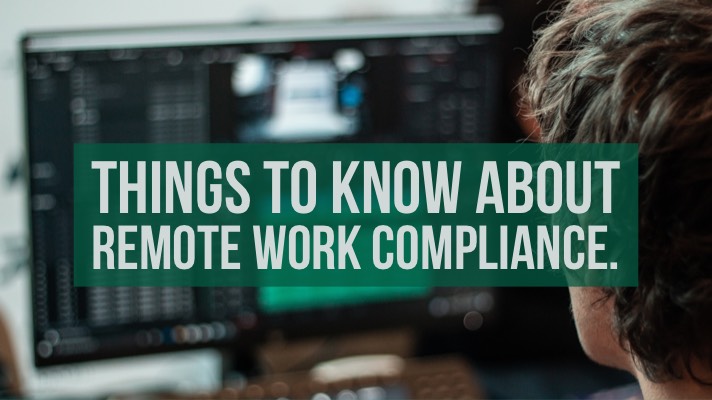Remote work compliance has become one of the vital things for an organisation to consider along with the Pandemic. Most organisations has developed policies and regulations for remote work and soon it will become the norm. Most of the global organisations would get their employees to work from home within the next few months. There are laws that apply to temporary Work from Home situations, most of the countries have issued legislature along this line of work.
Managing Human Resources globally is not easy and there are few things that organisations should consider when building a Remote Work Compliance Policy in-house.
- Data Compliance
Privacy and security is definitely the most important aspect of an organisation to consider, client information is extremely sensitive and it is vital to maintain privacy and security of these data when employees access information and servers from home. Complying with GDPR regulations when transferring data is a must, especially within international borders. It is important to get employees to use a VPN to ensure secured browsing, encrypt sensitive information, use two factor authentication and most importantly have privacy and security policies in place.
- Payroll Compliance
This is not an easy task to manage inhouse and hence most organisations hand it over to experts such as ExroAsia to manage it for them. When operating globally, this becomes challenging and extremely cumbersome due to the fact that organisation has to be aware of labor and employment laws and regulations of each country of which their employees are at. Paying the employees in accordance to country regulations is a must. That is why it is easier to outsource payroll as there are companies who are compliant and experienced in managing these activities for multiple locations.
- Health and Safety Regulations
Taking care of an employees’ health and safety while they work remotely can be very difficult, what organisations have to understand is that, it is still their responsibility to be responsible for them.
Identify potential risks and find measures to control risks, set up a system to report and notify on accidents, injuries and grievances. Provide health and safety guidance and education to employees specially be extra cautious on mental health and wellbeing of the organisation.
- Tools and Equipment for remote working
One of the first things to be done is to ensure that employees are equipped with necessary tools. Certain organisations reimburse employees for meals and other equipment costs while they work remotely. If countries have specific requirements, it is important to comply with those such as reimbursing for extra services such as phone, electricity and internet.
- Intellectual Policy
One of the most important areas to consider is how an organisation plans to protect intellectual property while working remotely. Organisation should have a system in place to protect the work that employees do and find a mechanism to execute it. Execution can include identifying the countries that employees work in and register IP’s, and signing a Non-Disclosure Agreement or adding it as a clause in the employee contract.

Comments